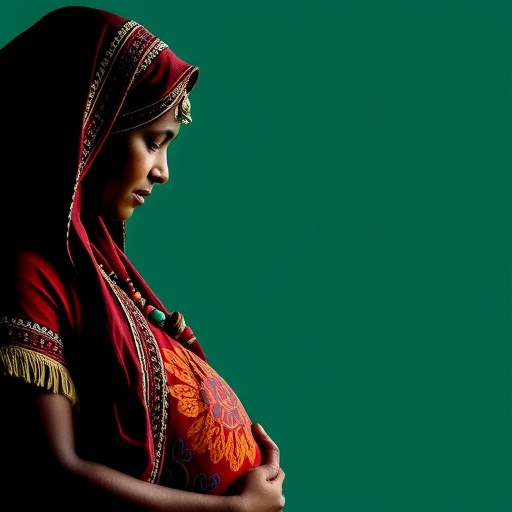In the relentless pursuit of global health equity, one demographic continues to face profound and often overlooked challenges: Indigenous populations in Latin America, particularly concerning maternal health. Recent research by Serván-Mori and Meneses-Navarro illuminates the critical disparities in maternal health outcomes among Indigenous communities, transcending the traditional boundaries of disease burden alone. This burgeoning crisis demands urgent attention not only from public health officials but also from policymakers, social scientists, and advocates aiming to dismantle decades of systemic inequities.
The issue of maternal health disparities is complex, layered with intertwined socioeconomic, cultural, and geographic factors that contribute to the uneven distribution of healthcare access and quality. Indigenous women in Latin America bear a disproportionate risk of adverse maternal outcomes, including higher rates of maternal mortality, morbidity, and complications during pregnancy and childbirth, compared to non-Indigenous populations. These disparities reflect deeply rooted structural barriers rather than mere biological differences.
One of the key factors driving these disparities is the persistent socioeconomic marginalization facing Indigenous communities. Many Indigenous women live in remote, rural regions where healthcare infrastructure is scarce, underfunded, or ill-equipped to address their specific needs. Although health services may be geographically accessible, they often lack cultural competence, meaning that they fail to respect or integrate Indigenous practices, languages, and values into their care protocols. This disconnect erodes trust and deters Indigenous women from seeking timely prenatal and postnatal care, exacerbating health risks during critical periods.
Moreover, the research underscores the limited representation of Indigenous perspectives within health systems and policy frameworks. Indigenous populations are frequently excluded from decision-making processes that shape the design and delivery of maternal health programs. As a result, many initiatives fail to address the unique challenges these communities face, such as linguistic barriers, traditional birthing practices, or the role of community midwives. Inclusion and empowerment of Indigenous voices could play a transformative role in tailoring health services that are both effective and culturally sensitive.
The intersection of gender and ethnicity further compounds the issues. Indigenous women confront systemic gender discrimination that limits their educational and economic opportunities, thereby indirectly affecting their health outcomes. Limited education and financial independence translate into reduced healthcare literacy and diminished ability to navigate healthcare systems, making maternal health interventions less impactful. Additionally, social determinants such as food insecurity, poor sanitation, and exposure to environmental hazards amplify vulnerability during pregnancy.
Serván-Mori and Meneses-Navarro emphasize that improving maternal health outcomes in Indigenous populations requires holistic and multidisciplinary approaches. Biomedical interventions alone cannot suffice; programs must integrate social, cultural, and community-driven strategies that honor Indigenous knowledge and autonomy. For instance, training healthcare professionals in intercultural competencies and supporting traditional birth attendants could bridge gaps between modern medicine and Indigenous health practices.
From a public health policy standpoint, prioritizing maternal health equity requires strengthening health information systems to capture accurate, disaggregated data on Indigenous populations. Data gaps impede the understanding of the true scope and nature of health disparities, thereby stalling targeted action. Enhanced data collection and analysis would enable monitoring progress, identifying high-risk groups, and allocating resources more efficiently.
Furthermore, universal health coverage schemes in many Latin American countries often exclude or inadequately serve Indigenous populations due to bureaucratic, linguistic, or geographic barriers. Reforming these schemes to ensure inclusivity and cultural responsiveness is pivotal. Programs that provide mobile clinics, culturally adapted health education, and community health workers have shown promise in bridging accessibility divides.
Environmental degradation and climate change also loom as emerging threats that disproportionately impact Indigenous maternal health. Many Indigenous communities rely on natural resources for sustenance and medicine, which affects prenatal nutrition and health. Disruptions in ecosystems due to deforestation, pollution, and extreme weather events can induce stressors that negatively influence pregnancy outcomes. Addressing environmental justice is thus inseparable from tackling maternal health disparities.
An important dimension highlighted is the role of social determinants of health as mediators of inequity. Improving maternal health necessitates addressing poverty, education, gender equity, and social inclusion concurrently. Intersectoral collaboration between health, education, social services, and indigenous affairs ministries has the potential to create sustainable, systemic change.
Global health institutions and donors also bear responsibility in supporting Indigenous maternal health. Funding priorities must shift towards long-term capacity building and community empowerment rather than short-term, disease-specific interventions. This entails investing in Indigenous-led health initiatives, research, and culturally safe practices.
In conclusion, the urgent need to address maternal health disparities among Indigenous populations in Latin America transcends traditional biomedical paradigms. Serván-Mori and Meneses-Navarro’s research calls for a paradigm shift centered on equity, inclusion, and cultural respect. Only through comprehensive strategies that engage Indigenous communities as partners can the stark inequities in maternal health be meaningfully reduced. Ending avoidable maternal deaths and complications in these populations is not merely a health imperative but a critical step towards justice and human rights.
Subject of Research: Maternal Health Disparities among Indigenous Populations in Latin America
Article Title: Beyond disease burden: the urgent need to address maternal health disparities among Indigenous populations in Latin America
Article References:
Serván-Mori, E., Meneses-Navarro, S. Beyond disease burden: the urgent need to address maternal health disparities among Indigenous populations in Latin America. Int J Equity Health 24, 276 (2025). https://doi.org/10.1186/s12939-025-02600-5
Image Credits: AI Generated




